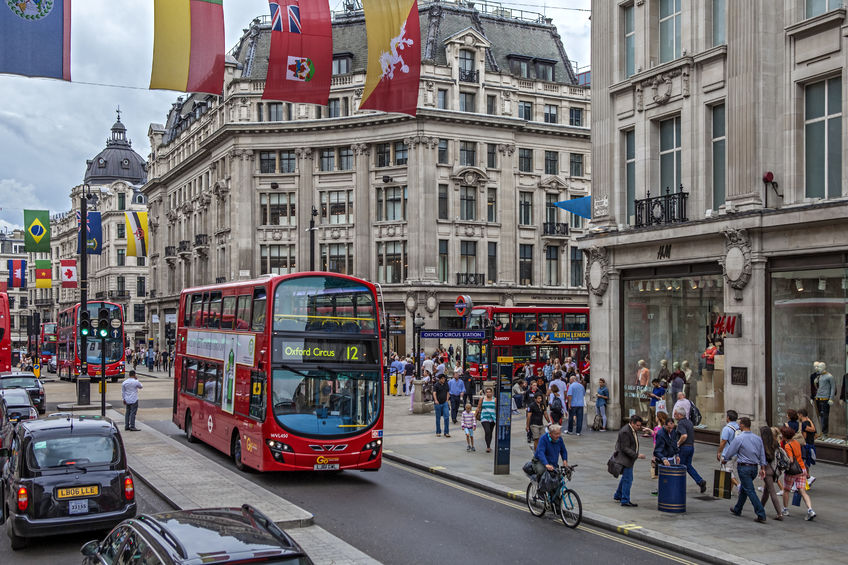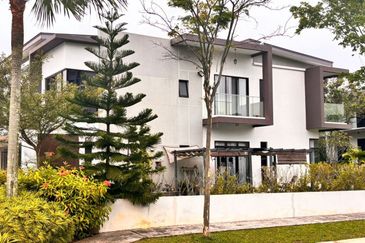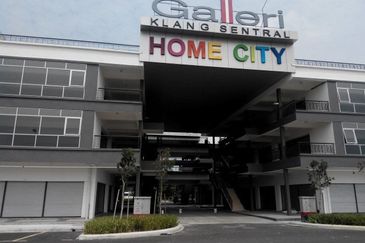
THERE is nothing extraordinary about Sedley Place, a retail and office building on London’s Oxford Street (pictured) that is the latest piece of UK prime property acquired by Norway’s sovereign wealth fund. What makes the £124 million (RM658.55 million) deal particularly noteworthy is that Norges Bank Real Estate Management bought the property from Aberdeen Asset Management, whose open-ended UK property fund was one of several forced to suspend trading owing to overwhelming redemption requests from investors following the UK’s recent referendum to leave the European Union (EU).
Market observers note that the Sedley Place deal is just the start of many to come, as more asset managers put their property holdings on the market to raise cash for redemptions. Real estate analyst Mike Prew of investment bank Jefferies estimates that between £3 billion and £5 billion worth of assets could be put on sale. However, a “trading vacuum” in what is already a troubled commercial property market could result in a “hefty Brexit discount”, The Guardian reported in early July.
This prediction could already be coming true. According to an unnamed source quoted by Bloomberg, Sedley Place was sold at a 15% discount off its offer price. An office building at London’s 10 Hammersmith Grove also put up for sale by Aberdeen was recently snapped up within a week; the Evening Standard reports that it is under offer to property fund Brockton Capital at £89 million, an 11% discount off its £100 million asking price.
Indeed, bargain hunters are out, as economic and political uncertainty combined with a weak pound continue to plague the UK in the aftermath of its Brexit vote. Foreign investors are said to be keeping an eye out for buying opportunities in the commercial and prime residential sectors of London’s property market, which was already showing signs of cooling even before the referendum in late June.
Investor confidence and demand shaken by Brexit woes could see UK commercial property values fall by more than 25%, while London home prices could be hit harder with a decline of more than 30%, analysts with Société Générale predict. In a recent investor note, they add that high-end areas in London may see greater price corrections of up to 50%, particularly if senior executives of banks and financial firms put their London homes on the market should they be relocated to Europe once the UK leaves the EU.
With the pound having hit a 31-year low against the US dollar since the vote, the hunt for bargains in post-Brexit Britain is not just confined to discounts in the property market. According to Reuters, the pound’s devaluation has made British companies 10% to 15% cheaper for foreign investors, encouraging US and Asian conglomerates to step up efforts to seek bargains as well as revisit deals that had been previously aborted owing to disagreements over price.
In fact, the weak pound was cited as a major factor for Chinese-owned, US-based AMC Entertainment’s decision to purchase UK’s Odeon & UCI Cinema Group for £921 million. AMC CEO Adam Aron describes it as a “once-in-a-generation opportunity” to acquire Europe’s leading cinema chain and build what he describes as “the world’s biggest and best theatre operator”.
The same week also saw a £597 million offer by South Africa-based Steinhoff to take over UK discount retailer Poundland, a deal that was already in talks prior to the referendum vote. The Evening Standard notes that the offer of 220p a share represents a 40% premium to the latter’s share price before talk of a deal emerged, but is still well below the 300p valuation at its 2014 flotation exercise.
And there is of course the much-reported acquisition of Cambridge-based chip designer ARM Holdings by Japan’s SoftBank Group for £24 billion, which has been welcomed by the British government as a sign of confidence in the country despite the uncertainty brought on by its shocking Brexit vote. This deal forms the bulk of the nearly 60 transactions worth US$34.5 billion (RM138.69 billion) made by foreign firms for British companies since the June 23 vote, as shown by Thomson Reuters data; in comparison, 79 deals worth US$4.3 billion were struck in the month leading up to the vote, Reuters reports.
Such news have helped to allay fears that inward investment would dry up post Brexit, even as Prime Minister Theresa May and Chancellor of the Exchequer Philip Hammond keep asserting that Britain is “open for business” and continues to remain attractive to international investment.
There are, however, concerns that the UK’s discounted assets will not just attract bargain hunters, but could also leave the British industry vulnerable to corporate raiders and asset strippers. Some quarters have been alarmed by the speed at which the SoftBank-ARM deal had been accepted by government officials, despite May’s pledge to intervene if necessary with takeovers in strategically important sectors.
Many still recall how Kraft, after taking over Cadbury’s in 2010, had broken its promise to safeguard jobs. And even though SoftBank has pledged to double jobs at ARM, there are concerns about how such commitments by acquiring firms are not legally enforceable. Shadow business secretary and Labour MP Jon Trickett has called for “decisive interventions” and a clear plan to nurture and promote the UK’s place in strategically important sectors, to avoid a scenario where the best British firms are “cherry picked” by foreign investors looking for short-term gains rather than long-term growth.
Given the UK’s current weakened economic and political position vis-à-vis the EU, there is now more than ever a need to strike the right balance between welcoming such inward investment for British assets and safeguarding British industry and jobs. — The Edge Singapore
This article first appeared in The Edge Singapore on Aug 1, 2016. Subscribe here for your personal copy.
TOP PICKS BY EDGEPROP

The Andes Condo Villa @ Bukit Jalil
Bukit Jalil, Kuala Lumpur

Isle of Kamares, Setia Eco Glades
Cyberjaya, Selangor























